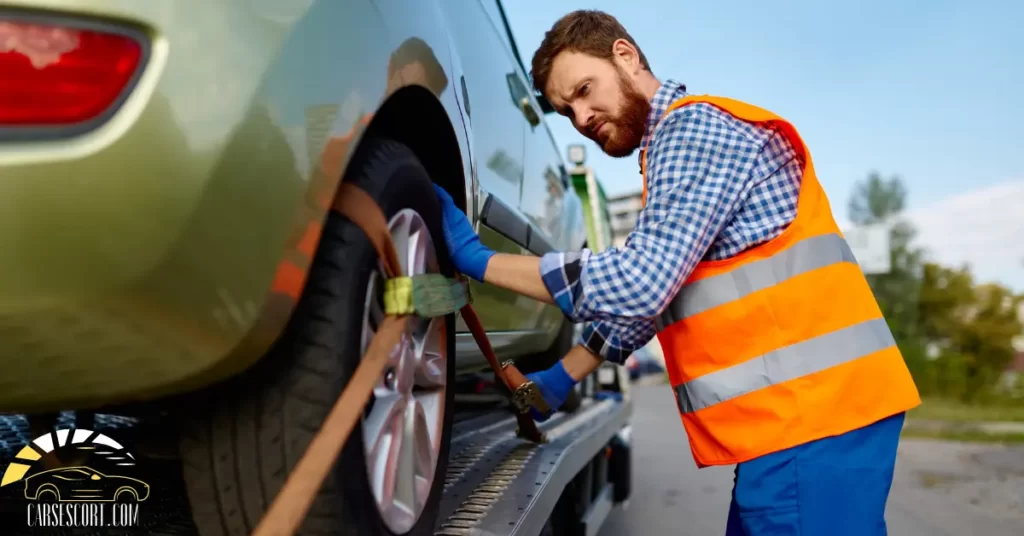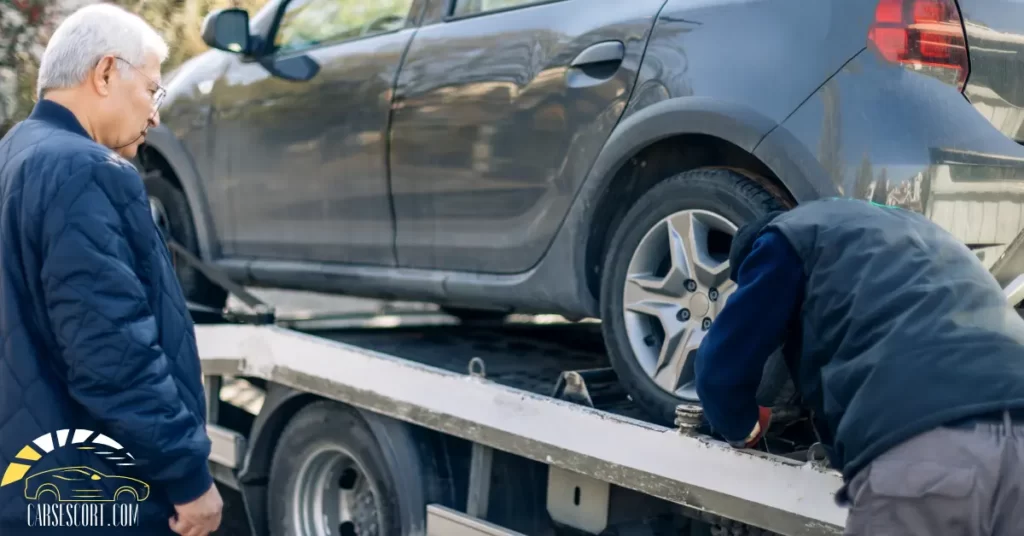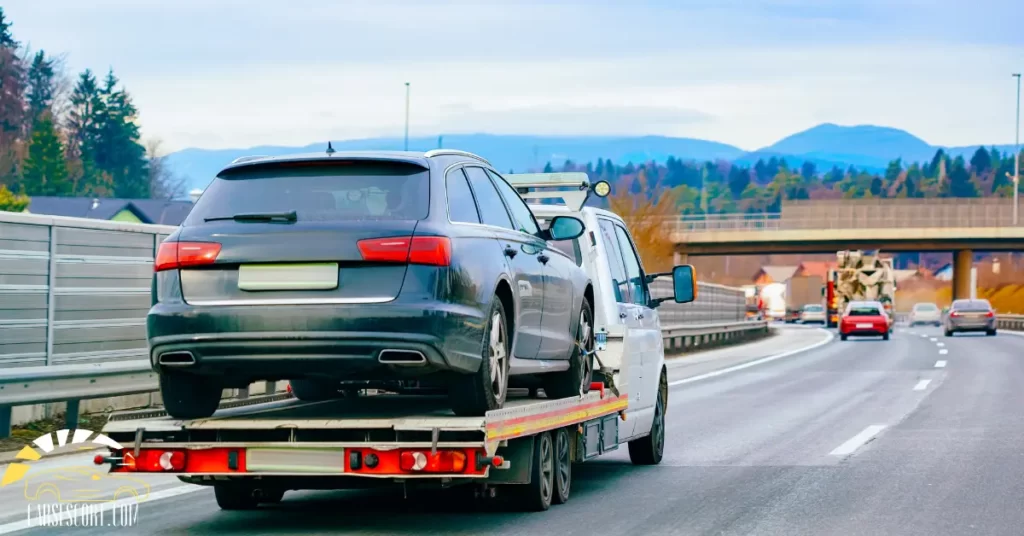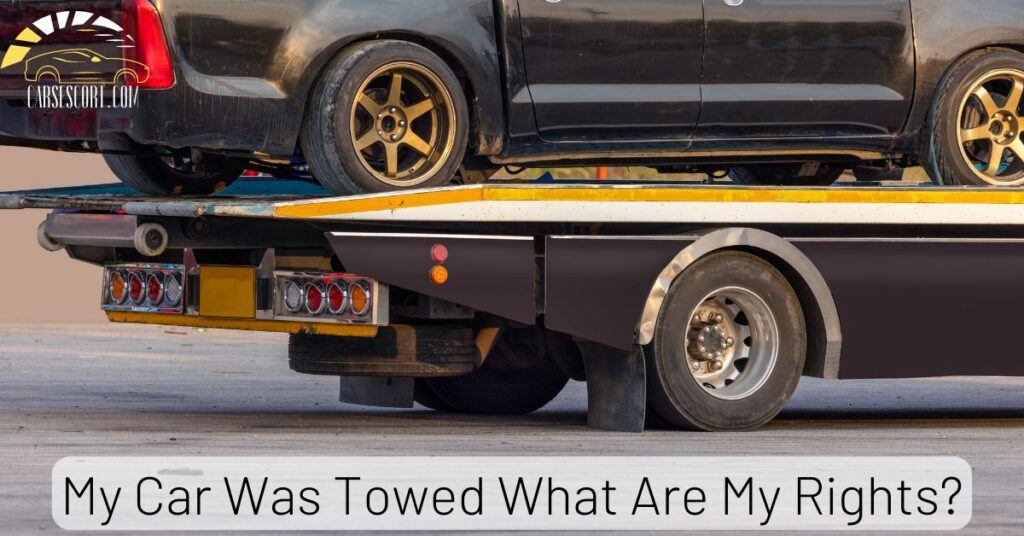Getting your car towed can be a stressful and frustrating experience, especially if you were surprised to find out about it. You may be left wondering what your rights are in this situation and what steps you can take to regain your car. Whether you parked in a restricted area, your vehicle was involved in an accident, or it was towed for another reason, it’s essential to understand your rights as a vehicle owner. So, my car was towed what are my rights?
If you believe your car was towed unlawfully, you have legal options, such as filing a complaint with the appropriate government agency or pursuing legal action against the private tow company. It’s essential to review the specific laws and regulations in your area and seek the advice of a qualified attorney if you need clarification on your legal rights and options.
If your car has been towed by a private company or local law enforcement government agency, you may have certain legal rights that you can exercise to challenge the towing.
These rights may vary depending on the specific circumstances of the towing, and it’s essential to understand your options and obligations under the law.
Can Someone Tow My Car Without Permission?
Private companies, such as insurance companies, loan providers, or car showrooms, only have the authority to tow your car with notice and proper permission. However, government agencies, such as law enforcement or local authorities, may tow your vehicle if it has been illegally parked in areas like roads, hospitals, or schools or if you have violated laws or regulations related to vehicle operation or parking.

My Car Was Towed What Are My Rights?
1) You have the right to be treated fairly and honestly.
As a respected citizen you have the right to be treated fairly and honestly. You should not be subjected to deceptive or unfair business practices.
If you believe your rights have been violated, you can file a complaint with the appropriate agency.
You can educate yourself about your rights and responsibilities under the law, carefully read contracts and other documents before signing them, and ask questions if you need clarification.
2) You have the right to review the charges for the towing and storage of your vehicle.
If your car has been towed, it’s essential to know that you have the right to review and dispute the charges associated with the tow and storage of your vehicle. This includes fees for the tow itself and any additional fees for storage or other services.
When reviewing the charges, you should ensure they are reasonable and not excessive. The towing company should provide a breakdown of the fees and explain the reasons for each charge.
Don’t hesitate to ask for clarification if you have any questions or concerns about the charges.
If you believe the charges are unreasonable or have been overcharged, you have the right to dispute them.
Depending on the circumstances, you can file a complaint with a government agency, such as the state attorney general’s office or the consumer protection division of the state government.
3) In case of illegal towing, you may be entitled to recover your actual damages and towing fees.
If you’ve been the victim of illegal towing, you may be entitled to recover your actual damages and towing fees. Illegal towing occurs when a towing company violates state or local laws regarding towing, such as by towing a car without a valid reason or without providing notice to the car owner.
You may need to take legal action against the towing company to recover your damages and fees, including filing a lawsuit or filing a complaint with a government agency overseeing towing companies.
You can sometimes recover damages for any harm you suffered due to the illegal towing. For example, if your car was damaged during the towing process or if you missed a necessary appointment because you were dealing with the aftermath of the tow, you may be able to recover compensation for those losses.
You may also recover the towing fees that you were charged due to the illegal tow, including the cost of the tow itself and any storage fees or other charges assessed by the towing company.
4) You have the right to retrieve any personal belongings left in the car.
If your car has been towed, you have the right to retrieve any personal belongings left in the vehicle. Includes items such as your purse, wallet, phone, or other personal items in the car at the time of the tow.
Under most circumstances, you should be allowed to retrieve these items without paying any additional fees. However, there may be certain restrictions or conditions that you’ll need to follow to do so.
For example, you may need to provide proof of vehicle ownership before you can retrieve your belongings. You may also need to show identification or provide other information to the towing company.
In some cases, additional fees or charges may be associated with retrieving your personal belongings. For example, if the towing company had to store your belongings separately from the car, they may charge a fee for this service.
It’s important to carefully review the terms and conditions of the tow company’s policies regarding personal belongings retrieval. Feel free to ask for clarification if you have any questions or concerns.
5) You have the right to request a hearing.
If you believe your car was wrongfully towed, you can request a hearing to contest the tow. This hearing can be requested from the agency that authorized the tow or from a court.
During the hearing, you’ll have the opportunity to present evidence and argue your case, including evidence that the tow was conducted improperly or without proper justification, such as evidence that you were parked legally or that the tow was driven without adequate notice.
It’s important to carefully review the rules and procedures for requesting a hearing, as there may be specific deadlines or requirements that you’ll need to follow. For example, you may need to file a formal written request for a hearing within a few days after the tow.
It’s a good idea to gather as much evidence and information as possible to support your case. This could include photographs of the parking area, witness statements, or other documentation demonstrating that the tow was wrongful.
By requesting a hearing and presenting your case, you may be able to have the tow overturned or obtain a refund of any fees you were charged due to the tow.
However, it’s essential to be prepared for the hearing and to have a strong case, as the burden of proof will be on you to demonstrate that the tow was wrongful.
6) You have the right to inspect it for any damage.
You can inspect your car for any damage when you retrieve it after it has been towed. If you notice any damage to your vehicle, you should report it to the towing company and the appropriate agency immediately.
It’s important to carefully inspect your vehicle before you drive it away from the tow lot. Look for any signs of damage, including scratches, dents, or other harm that may have occurred during the towing process.
If you notice any damage, take photos or video of the damage to document it. Note the time and date you saw the damage and the name of the person you reported it to at the towing company.
You should also file a complaint with the appropriate agency that oversees towing companies in your area. This could be a state or local agency that regulates towing companies or handles consumer complaints.

You May Also Like To Read:
What To Do If Your Car Is Towed?
If your car has been towed, you have certain rights that you should be aware of. These rights can vary depending on the reason for the tow, your jurisdiction, and your situation’s specific circumstances.
1) Find out why your car was towed.
If your vehicle was towed, find out why. The tow company should provide you with a reason for the tow. Common causes include parking violations, blocking a driveway, being involved in an accident, or being abandoned.
2) Know the tow company’s obligations.
The tow company has certain obligations that they must follow. For example, they must provide you with a written notice of the tow according to the towing laws and inform the police department of the tow. They also can charge up to the maximum allowed fee for towing and storage in your area.
3) Understand your options.
Depending on the reason for the tow, you may have different options. For example, if your car was towed for a parking violation, you may be able to pay a fine and retrieve your vehicle. If your vehicle was towed due to an accident, you should contact your insurance company to start the claims process.
4) Check your car insurance policy.
Depending on your insurance policy, you may have coverage for towing and storage fees. Check your policy to see if this is the case.
5) Document everything.
Take photos of your car before it is towed and after you retrieve it. Keep copies of all paperwork and receipts related to the tow.
6) File a complaint if necessary.
If you believe that your car was towed illegally or that the tow company violated your rights, you can file a complaint with the appropriate regulatory agency in your area.

How Do You Get Your Car Back When the Police Tow or Impound It?
If your car has been towed or impounded by the police, you must follow a specific process to retrieve it. Firstly, you must find your car’s location by calling the local police department or impound lot. You’ll need to provide proof of ownership, a valid driver’s license, and proof of insurance to retrieve your vehicle and pay any fines or fees.
Once you have the necessary documents and have paid the required fees, you can collect your car at the impound lot during business hours.
Sometimes, you must hire an attorney and get Court Orders to Release the vehicle.
FAQ
When can private property owners tow a vehicle in California?
Private property owners in California can tow a vehicle if it is parked on their property without permission, parked in a manner that obstructs the property owner’s driveway or entrance, or parked in a space designated as a fire lane or handicap space.
How Do I Get Personal Items Out of My Towed Vehicle?
If your vehicle has been towed and you need to retrieve personal items, contact the tow company or impound lot. They will likely require proof of ownership, a valid ID, and payment of any fees associated with the tow or impound. You may also be required to sign a release form before being allowed to retrieve your personal belongings.
Who Pays When the Tow or Impound Is Unlawful or Isn’t the Owner’s Fault?
If the tow or impound is determined to be unlawful or not the owner’s fault, the responsible party will vary depending on the situation. Sometimes, the tow company may be liable for any damages or fees incurred. In other cases, the property owner or law enforcement agency responsible for the tow may be accountable.
How Do I Challenge a Tow or The Reasonableness of Fees?
If you believe a tow was performed unlawfully or the fees charged were unreasonable, you can request a hearing with the local agency responsible for regulating towing companies. You can also file a complaint with the California Department of Consumer Affairs and Bureau of Automotive Repair or file a small claims court case against the tow company.
It’s essential to gather evidence to support your claims, such as pictures or witness statements, and to review the laws and regulations governing towing in California carefully.
Can a Car be Towed With a Person Inside?
No, towing a vehicle with a person inside is not legal or safe. When it is being towed, someone inside the car could be seriously injured or killed. If you are ever in a situation where your vehicle is being towed, and you are inside, it’s essential to let the tow truck driver know immediately and exit the car.
How To Get a Towed Car Back Without Paying?
Getting a towed car back without paying is only possible if the tow was performed unlawfully or not the owner’s fault. In some cases, you may be able to challenge the tow and have the fees waived or refunded, but this will depend on the specific circumstances of the tow.
Following the necessary steps to retrieve your car is essential, including paying any fees or fines associated with the tow or impoundment. Please do so to avoid additional penalties, fees, and the potential loss of your vehicle.
Affiliate Disclosure: Cars Escort is a participant in the Amazon Services LLC Associates Program. As an Amazon Associate, we earn from qualifying purchases made through affiliate links on our site. Read Our Disclaimer .

